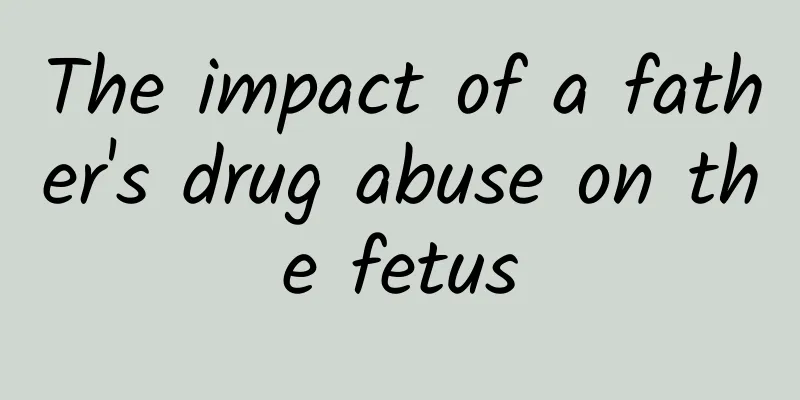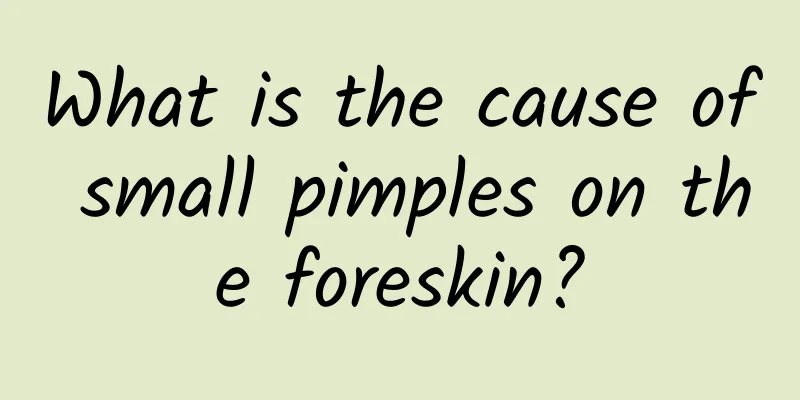Is it harmful to not ejaculate for a long time?

|
Premature ejaculation is a common clinical phenomenon. Most men experience premature ejaculation. In fact, not only do men experience premature ejaculation, but they also experience no ejaculation. No ejaculation is also a common sexual dysfunction disease in men. If men do not ejaculate for a long time during sexual intercourse, it will affect their physical health. Is it harmful to not ejaculate for a long time? Is it a disease if you don't ejaculate for a long time? 1. Ejaculation disorders can easily lead to premature ejaculation: Many men think that premature ejaculation is not "manly" and develop inferiority complex, which is detrimental to their mental health. In addition, premature ejaculation will also affect the harmony of sexual life between couples and affect the relationship between couples. 2. Anejaculation: If a man does not ejaculate, it will affect his fertility. During sexual intercourse, no semen is ejaculated into the female body, so the woman naturally cannot get pregnant, which is very harmful. 3. Pain during ejaculation: The pain during sexual intercourse affects the harmony of sexual life. If this continues for a long time, it will cause men to develop a fear of sexual life, and in severe cases it will lead to infertility. Psychological therapy: Most patients with functional anejaculation can achieve immediate results by explaining sexual knowledge, eliminating negative psychological influences and misconceptions, and providing sexual behavior guidance. Behavioral therapy: Behavioral therapy can be used for ejaculation disorders such as premature ejaculation. This method is to improve the patient's ability to control ejaculation and reduce the sensitivity of the patient's sexual organs through exercise. Drug therapy: Taking ephedrine, a drug that acts on α and β receptors, one hour before sexual intercourse can help restore ejaculation function. For ejaculation disorders caused by endocrine disorders or drugs, hormones should be supplemented appropriately or drugs that affect ejaculation should be discontinued. What is the cause of anejaculation? Anejaculation, also known as ejaculation failure, refers to normal sexual desire, normal penis erection, the ability to maintain erection and sexual intercourse in the vagina for a period of time, even for a long time, but no orgasm and inability to ejaculate. There are many reasons for anejaculation, which can be divided into two categories: functional and organic. (1) Functional anejaculation, the causes of which are as follows: ① Mental and emotional factors, also known as psychogenic ejaculation disorders, are the most common in clinical practice. They are mainly caused by sexual dysfunction, increased inhibition of the ejaculation center, and inability to get excited. Sometimes there is a premonition of ejaculation, but it disappears in an instant. The causes are all from the mental and psychological aspects, such as frequent masturbation before marriage, so that sexual intercourse after marriage cannot reach a sufficient intensity and ejaculation does not occur; the education received since childhood distorts sex into something obscene, dirty, and obscene; or dissatisfaction with the spouse, loss of interest in the opposite sex, decreased sexual desire, and avoidance of sexual intercourse; some are afraid that their wives will get pregnant after marriage, and they restrain their sexual life for a long time, forming a conditioned reflex of not ejaculating. ② Lack of sexual knowledge: Incorrect sexual intercourse posture or method, the penis stagnates after insertion into the vagina, there is no friction or the friction intensity is not enough, the excitement is not aroused or the intensity required for ejaculation is not reached, which often leads to no ejaculation. (2) Organic anejaculation, the causes of which are as follows: ① Genital anatomical abnormalities: congenital defects of the urogenital tract, such as congenital absence of the seminal vesicle and congenital absence of the vas deferens; obstruction of the vas deferens, seminal vesicle, epididymis, etc. of the reproductive tract caused by injury or inflammation. ② Nervous system diseases: such as lateral lobe disease and resection, spinal cord injury, lumbar sympathetic nerve resection, and post-radical pelvic surgery. ③ Endocrine dysfunction: such as lesions of the pituitary gland, gonads, thyroid glands, etc. |
<<: The best way to treat impotence
>>: Are there small white rice grains under the glans?
Recommend
How to make yourself ejaculate quickly
Men will continue to produce sperm throughout the...
What to do if a man has a urinary tract infection and frequent urination
Urinary tract infection is a common symptom in me...
Why is my left testicle particularly large?
Normally, the right testicle of a male friend is ...
Why does my husband ejaculate at night?
Generally speaking, it can happen to male patient...
What are the dangers of prostatic fluid?
Nowadays, there are more and more male diseases i...
Reasons why men ejaculate at night
I believe that most male friends must know what s...
How to train male sexual ability?
Sexual ability is not only the best weapon for ev...
Why is it that one scrotum is bigger than the other?
Some men have problems with their reproductive or...
Man's hands
Men are naturally stronger than women. They also ...
Daily tips to solve eye allergies
Eyes are the source of human vision. Eye allergie...
Make you a more beautiful woman
Men and women are originally the same creatures. ...
How long does Levitra last?
Premature ejaculation, impotence, or male prostat...
Why does ejaculated sperm feel like water?
When I was studying, I had a habit of masturbatio...
What are the harms of having sex during menstruation to men?
Young men and women are full of energy and will h...
Kidney-boosting foods that are more effective than male enhancement pills
Some men always become very unconfident in sex be...









